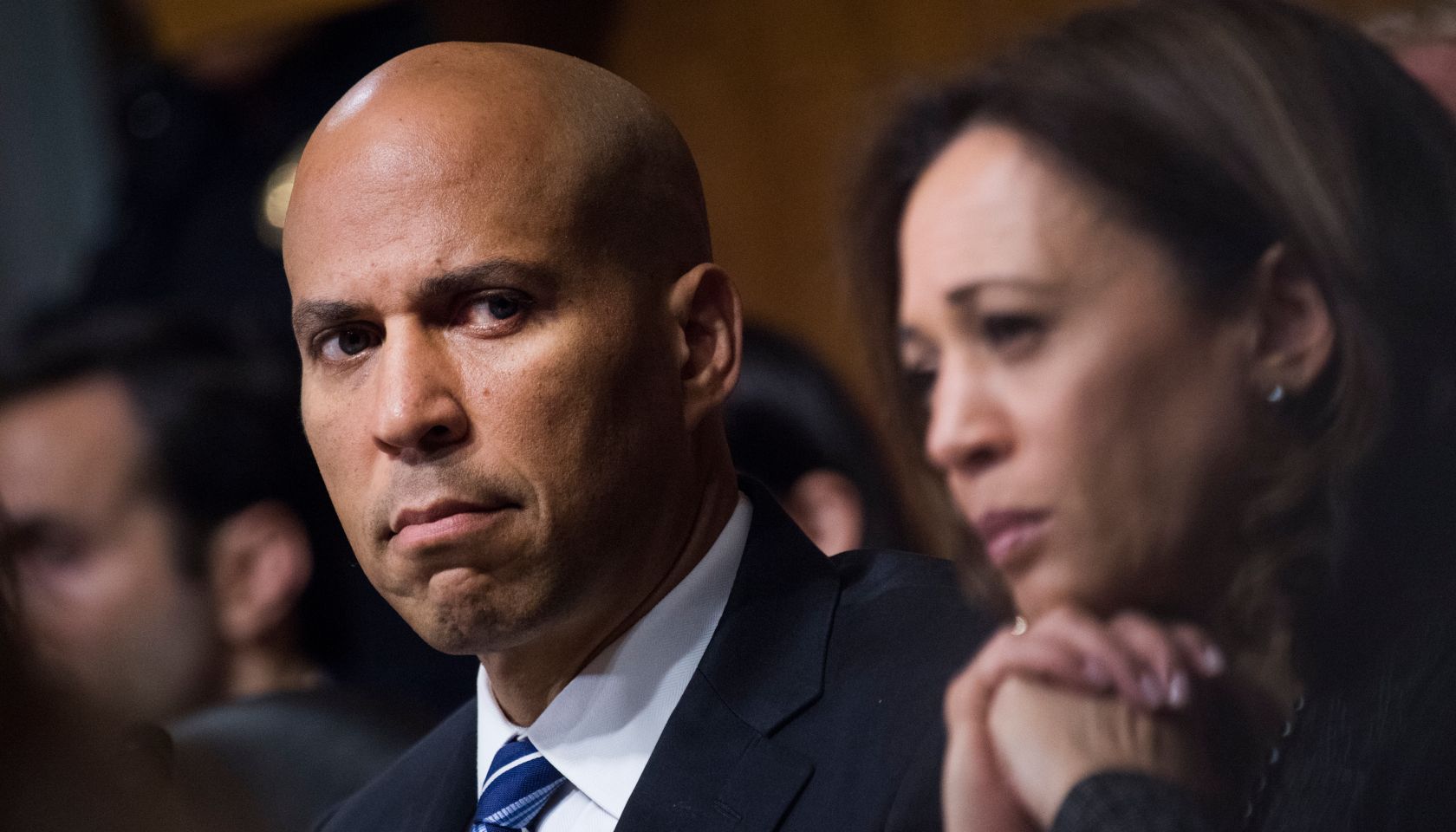Who Is Myra Selby? Amy Coney Barrett's Circuit Court Seat 'Stolen' From Her
Never Forget: Myra Selby Is The Black Woman Judge Whose Court Seat Was ‘Stolen’ For Amy Coney Barrett
The first day of Amy Coney Barrett‘s confirmation hearing all but solidified that it was a matter of when and not if she would become the newest justice on the U.S. Supreme Court. Therefore it may behoove Democrats to change their messaging from one of absolute defiance to one that brings awareness to related political issues just three weeks to the day before the general election.
One way they could do that is drawing attention to Republicans’ tradition of packing the courts that dates back to President Barack Obama‘s nomination of Myra Selby — a Black woman judge — to the 7th Circuit Court of Appeals in early 2016. But Republicans, led by Kentucky Sen. Mitch McConnell, blocked Selby’s confirmation. Instead, Donald Trump ended up winning the election that year and soon afterward nominated Barrett to the 7th Circuit Court of Appeals, which she was ultimately confirmed to and still serves on to this day.
Had the Senate granted Selby a hearing, she likely would have been confirmed instead of having that seat “stolen” from her, as NAACP adviser Leslie Proll noted after Trump nominated Barrett.
There was also the issue of Joe Biden promising to nominate a Black woman to the Supreme Court,m which will be a first. Had Republicans respected Ruth Bader Ginsburg‘s wish to wait until after the election to confirm her replacement, polling shows that Biden will probably win the election which would have allowed him to move forward with his own nomination. Given Biden’s fierce protection of Obama’s legacy, that person could have very well been Selby.
Beginning Tuesday, all senators serving on the Senate Judiciary Committee will be allotted 30 minutes each to question Barrett about any topics they choose. With Sen. Kamala Harris during last week’s vice-presidential debate expertly bringing up the topic of Trump packing the federal courts with nothing but white judges, Coney’s confirmation hearing could be a good opportunity for Democrats to bring up Selby’s name as a way to draw attention to what’s at stake in the election when it comes to the highest levels of the country’s justice system.
“After Trump was elected Seventh Circuit lost its only Black judge to retirement,” Proll also tweeted. “The Shelby appointment would have retained diversity on this court.”
Proll added: “The Seventh Circuit is now the only all-white federal appellate court in the country.”
Back in 2016, Obama described Selby — both the first Black person to serve on the Indiana Supreme Court and the first woman appointed to the state’s highest legal panel — in part as displaying “exceptional dedication to the legal profession” and vowed that she and another judge he nominated would “be diligent, judicious and esteemed additions to the bench.” But her nomination expired after a year elapsed, strategically allowing Trump to bring forth his own set of judicial nominations.
Civil rights groups have said that beginning a Supreme Court hearing after voting has begun undermines the democratic process. Even Barrett once explained why she believed — at the time, at least — that it is wrong to confirm a Supreme Court Justice during an election year.
Fast-forward four years and Republicans are up to their same tricks, expediting Barrett’s confirmation when they refused to grant both Selby as well as Merrick Garland — Obama’s Supreme Court nominee in 2016 — the same courtesy.
Barrett, a staunch conservative, was the only person who Trump interviewed for the position. Trump “came away impressed with a jurist that leading conservatives told him would be a female Antonin Scalia, referring to the justice who died in 2016 and for whom Judge Barrett clerked,” Peter Baker reported for the New York Times.
Of course, there are other issues to be concerned about with Barrett, such as her reported membership to an alleged religious and pro-life cult called People of Praise, her apparent threat to Roe v. Wade, the landmark Supreme Court case that legalized a woman’s right to have an abortion, as well as her use of anti-LGBTQ rhetoric.
But a comparison to Scalia in 2020 amid nationwide protests against racism, coupled with the fact that he didn’t have the best track record when it came to the topic of race, may not be the optimal way for Trump to appeal to the Black voters he’s so desperately courting.
That fact was apparent to the Lawyers’ Committee for Civil Rights Under Law, which found that Barrett’s “writings and speeches” suggested she wouldn’t offer the proper protection to civil rights as a Supreme Court justice.
“Her confirmation would dramatically alter the Supreme Court in ways that would prove devastating for Black communities and other people of color across the country,” Kristen Clarke, president and executive director of the Lawyers’ Committee for Civil Rights Under Law, said in a statement.
SEE ALSO:
All Eyes On Kamala Harris As Amy Coney Barrett’s Supreme Court Confirmation Hearing Begins
















